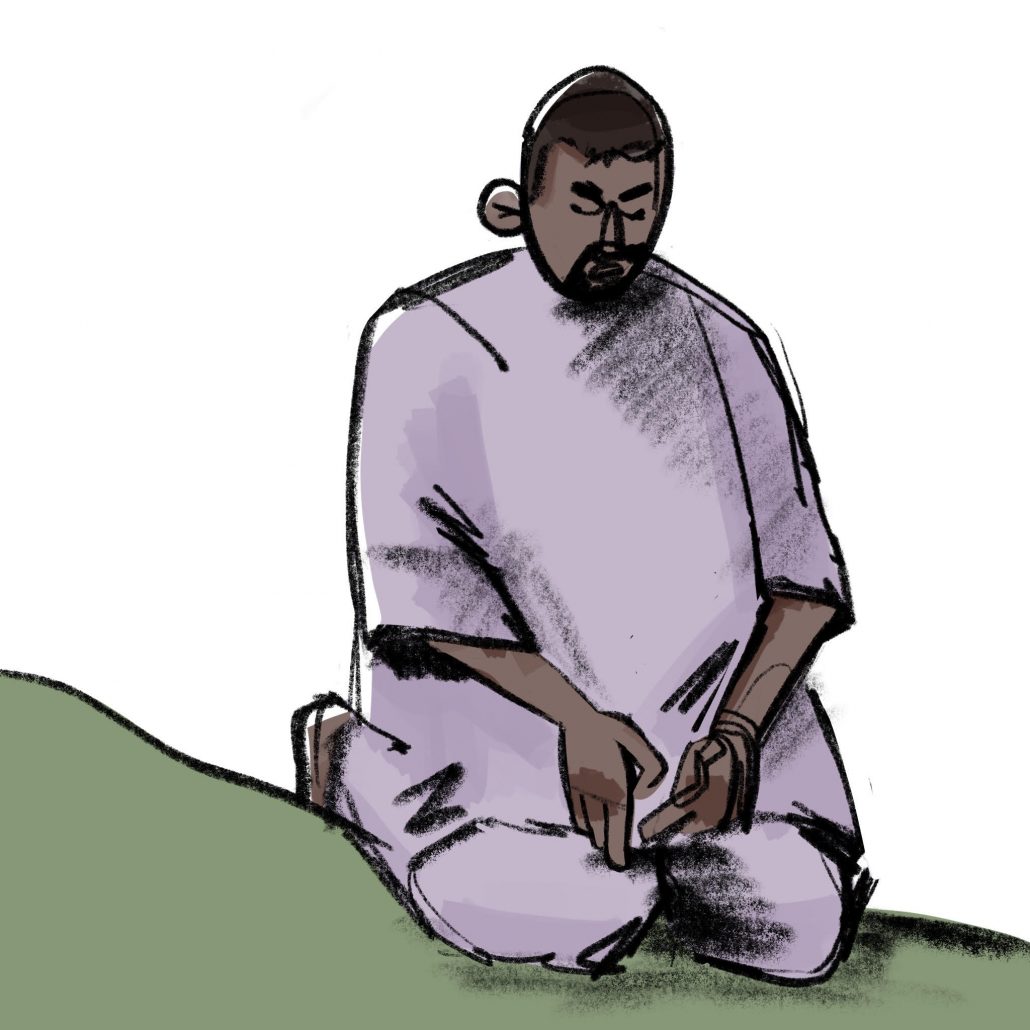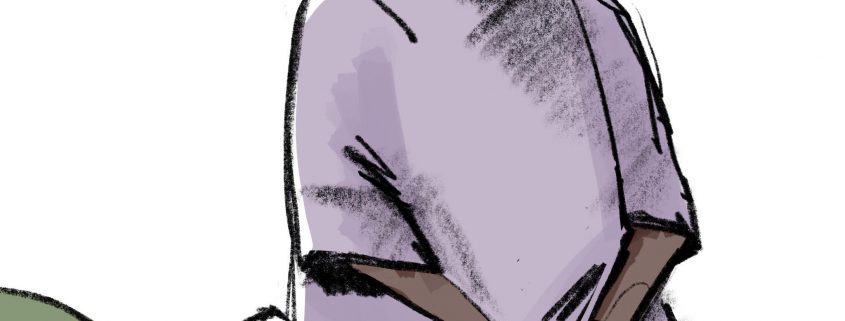Everything but the Song: Kanye West should be held responsible, not just canceled

Jay-Z warned us in his 2006 song “Meet The Parents” saying, “First they love me, then they hate me, then they love me again.” The rapper’s lyrics ring true in his own relationships pertaining to his fandom and media criticism. But they are also relevant in light of a growing phenomenon: “cancel culture.”
In theory, cancel culture shifts a person from being completely celebrated to boycotted and shunned by the masses. But in actuality, artists we’ve canceled have experienced more complex relationships with the fanbase and the general public. In the span of a week, your favorite artist can go from the black sheep of every op-ed and tweet to debuting at No. 1 on the Billboard Hot 100. Wait, that’s the story of Kanye West.
This week, his latest album “Jesus Is King” is expected to sell nearly 275,000 despite Kanye allegedly being canceled.
Outside of an album that is a slight lyrical shift from his past projects, his latest round of interviews and antics are what grants him social media’s most awarded moniker: canceled.
He’s continued his support of President Donald Trump in an interview with famed radio personality Big Boy and claimed Black people “don’t have [their] culture” and that Black people are, in fact, “culture-less.”
He has also been criticized for allegedly making a mockery of Christianity by selling tickets to see his Sunday Service collective, with merch including $50 socks and $225 sweatshirts.
Despite what any critic can write or what social media says, actual sales numbers can provide better insight into the state of the culture. Not only is Kanye not canceled, but the act of cancelation is socially performative — talked about online but not put into practice.
I myself have grappled with my support of Kanye. I’ve attended Sunday Service, but I refuse to stream the album. I’m appalled and disgusted by his comments on slavery and the Black community as well as his support for Trump. But I can’t seem to fully let go.
I haven’t yet separated the “George Bush doesn’t care about Black people” and “The Glory” Kanye from the man that we see today. I may very well be in shock that a Black man like Kanye, who has undoubtedly pushed the hip-hop sound forward for years, can not only support Trump obsessively but also regress the very culture he influenced. That is unfair.
For myself, those who care about the state of hip-hop culture and those granted the privilege to interview the rap legend, it is our job to help push the conversation past canceling Kanye and truly hold him accountable for his actions. We must continue to question and evaluate his evolution as an artist and current political leanings. We must be truly critical of the things we love.
Since the hype around “Jesus Is King” commenced, music and entertainment media have left dozens of questions unanswered regarding the direction of his new music and his thoughts on the political landscape.
His most recent press run included appearances on “Jimmy Kimmel Live!” and “The Late Late Show” with James Corden, as well as interviews with Beats 1 radio’s Zane Lowe and Big Boy. And in all the in interviews ‘Ye has been shielded him from proper scrutiny.
The latter two music journalism personalities both missed an opportunity to critique and investigate 2019’s version of Kanye West. Yes, his support for Trump and his overwhelming love for Jesus were discussed, but as he spewed inaccuracies, there was no pushback.
After a rant that included baseless claims that Democrats are making Black people abort their children and that Black people are cultureless, Big Boy tells Kanye, “On a lot of stuff, we’re going to have to agree to disagree,” but “I’m here to celebrate you.” And Lowe’s facial expressions serve as the only critique or inquiry into his support of Trump, as first noted by Jordan Darville of The Fader.
Based on these interviews, it’s not only the fans who are buying into his cult of personality, as showcased from his recent album’s first-week debut but also the media. And this is what feeds the cynical nature of his antics.
With the upcoming presidential election roughly a year out, it’s a misstep by any interviewer to not dive deeper into his support for Trump and his conservative ideologies. As white media organizations overwhelmingly repackage and misrepresent hip-hop culture, Black journalists and media personalities, such as Big Boy, owe it to hip-hop to correct and call out attacks on Blackness.
It seems that the Kanye interview is more about quotable moments, ratings and the fanfare of it all, as opposed to actually understanding and deconstructing the artist and his evolution. And quite frankly, as a budding critic who was a pre-Trump fan of Kanye, I find it upsetting to see such abysmal attempts by the media in interviewing modern music’s most eclectic character.
The role of the press, in politics or in pop culture, is to inform, criticize and encourage debate. To be a watchdog and check those in power. And right now, whether we like it or not, Kanye has the power to influence his fanbase and make a continued mark on hip-hop and popular culture.
Yes, there are the Naima Cochranes of the world who have been critical of Kanye in their writing, the T.I.’s who have noted that Kanye probably doesn’t read and fans who acknowledge their continued support while calling him out. But those with the monumental opportunity to ask Kanye the tough questions have not risen to the occasion.
Cancel culture is a myth; we’ve already concluded that through Kanye’s sales and sold-out performances. And quite honestly, I don’t believe in just simply expressing my disdain for an artist, public figure or celebrity and leaving it at that. It’s far more meaningful to identify and challenge, critique harmful ideas and escapades perpetuated by those we love and admire.
As Kanye spews more fallacies and continues his press tour, it’s not only up to the fans to be analytical of who and what we consume but for those in power and with power to ask the essential questions.
Ellice Ellis is a senior writing about the music industry and social justice. Her column “Everything but the Song” runs every other Tuesday.

